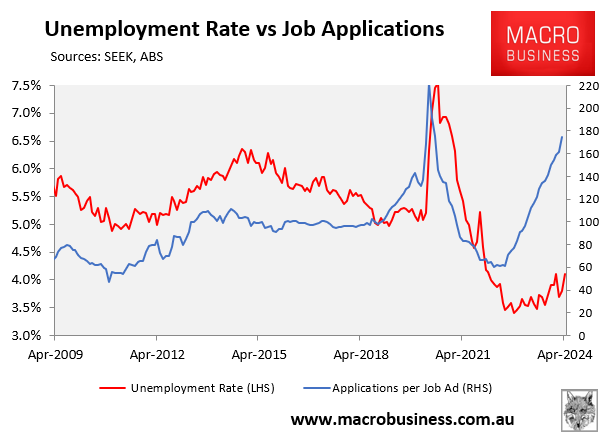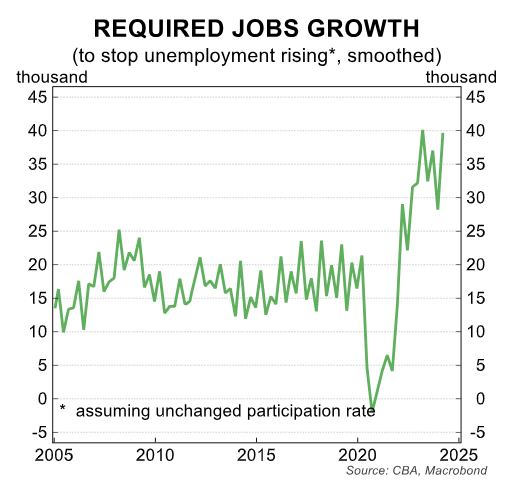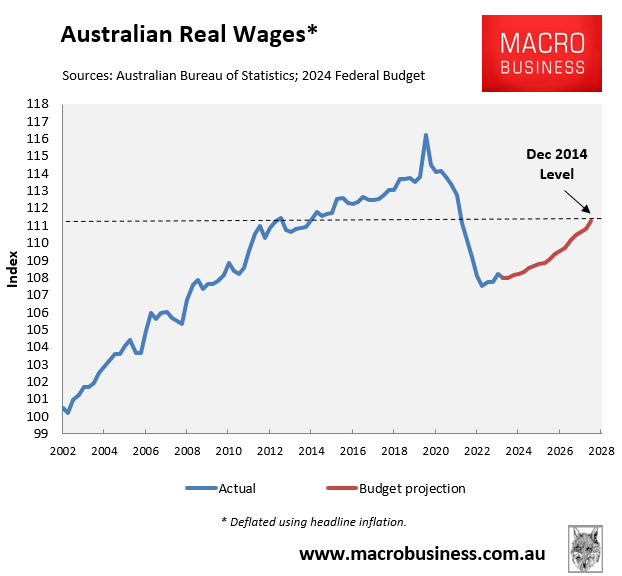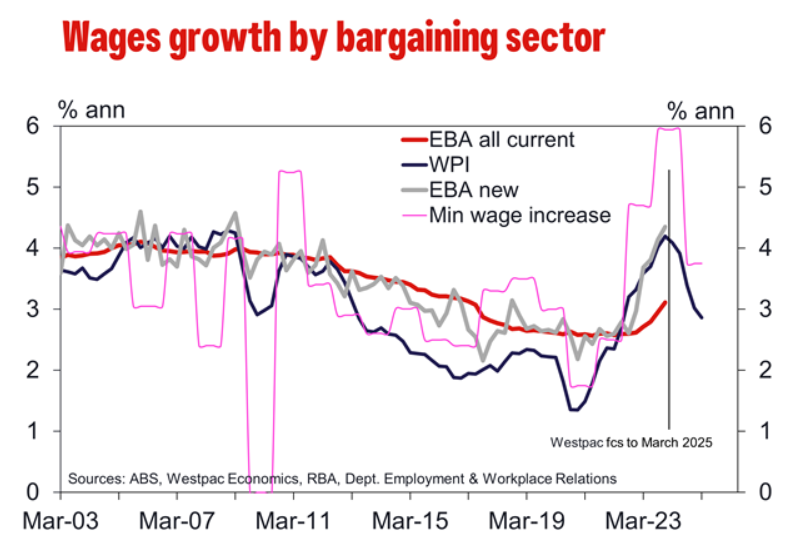On Monday, the Fair Work Commission (FWC) approved a 3.75% increase in minimum and award wages, which was significantly below the 5.75% increase granted a year earlier.
Westpac noted that the decision represented a “downside risk” to its forecasts.
As a result, Westpac now forecasts that Australia’s Wage Price Index will rise by 0.7% in the September quarter (versus its prior forecast of 0.8%), which will take the annual pace of wage growth down to only 3.0% by the end of the year:
Advertisement
A slowdown in wage growth seems inevitable given the surge in the number of applicants per job ad, which is tracking 55% above the same time in 2019, according to SEEK:

Given strong net overseas migration, Australia needs to create nearly 40,000 jobs per month just to keep the unemployment rate stable, assuming a constant participation rate:
Advertisement

Achieving such job growth is an impossible task in light of slowing economic activity and the deep per capita recession.
It is also worth pointing out that Westpac’s wage forecast is well below the latest federal budget, which projected that the wage price index would decelerate to 3.25% by mid-2025.
Advertisement
Even with the budget’s higher wage forecast, Australian real wages are only projected to recover to 2014 levels by 2028:

Even the federal budget’s poor wage growth forecasts could end up being optimistic.
Advertisement
The low productivity mass immigration economy is incompatible with strong wage growth.

